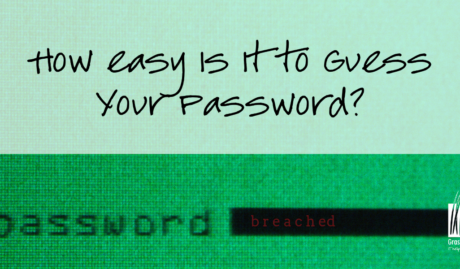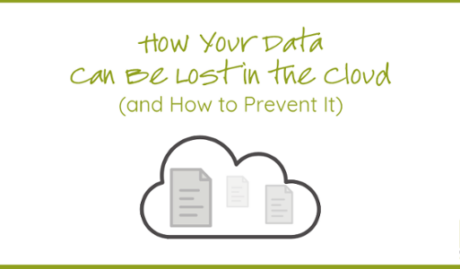Technology and the internet play a crucial role in the day-to-day operations of non-profit organisations of all sizes, from small volunteer-run operations to huge worldwide groups like the Red Cross. From fundraising to communication with donors and volunteers, technology has made these tasks more efficient and effective. However, this increased use of technology also brings about heightened risks of cybersecurity threats.
According to statistics from the 2020 Global Risk Report by the World Economic Forum, cyberattacks are among the top 5 global risks in terms of likelihood. This means that organisations, including non-profits, need to take cybersecurity seriously in order to protect their assets and data.
The unique cybersecurity challenges for non-profits
Not only are non-profit organisations often handling sensitive data, such as donor and beneficiary details, but they may also be responsible for substantial funds, making them an attractive target for cyber criminals. Add to this that many non-profits operate with smaller teams and budgets, and it becomes clear that many may face unique challenges when it comes to cybersecurity.
Unfortunately, many non-profit organisations are ill-prepared to handle cyber threats, leaving them vulnerable to attacks with potentially devastating consequences, such as:
Financial Loss
A successful cyberattack on a non-profit can result in direct financial losses from stolen funds or ransomware, not to mention costs involved in recovering from the incident and returning operations to normal. This can be particularly damaging for smaller non-profits with limited resources, or those without cyber-insurance coverage.
Reputational Damage
The loss of sensitive data, especially if it involves personal or financial information of donors and beneficiaries, can severely damage the trust and confidence placed in the organisation. This could result in a loss of supporters and volunteers, making it harder for non-profits to achieve their goals.
Legal & Compliance Consequences
Non-profits are also held to the same legal and compliance standards as for-profit organisations when it comes to protecting sensitive data. Failure to comply with these regulations could result in legal consequences, fines, and reputational damage.
Low-cost cybersecurity strategies for non-profit organisations
Given the competing priorities of increasing risks of cyber threats and staying focussed on mission, it is important for non-profit organisations to make the most of effective, right sized and cost-efficient cybersecurity strategies. Here are some key strategies that we have had success with when working with non-profit clients to improve their cybersecurity.
Employee training & awareness
One of the most vulnerable areas of any organisation’s cybersecurity is its employees. It is crucial for non-profits to provide cybersecurity awareness training to all staff members, including volunteers, on safe internet practices and how to identify potential threats.
As well as commercially available cybersecurity awareness training offerings, there are plenty of free resources available online, such as on YouTube. Running internal training sessions and information sharing workshops is also free and easy, and an excellent way of building cybersecurity awareness amongst staff and volunteers.
Read more: Building a culture of cybersecurity awareness
Vendor donations & discounted software
Non-profits can take advantage of vendor donation programs to obtain a range of technology solutions including cybersecurity software and tools either at a reduced price or for free. Many technology companies such as Microsoft, Canva and Xero have programs specifically designed for non-profits that offer discounted or donated products and services.
As an example of what’s available, Microsoft offers up to 10 free licenses of Microsoft 365 Business Premium to qualifying non-profit organisations in Australia, with deep discounts for additional licensing over the initial 10. How can this help non-profit cybersecurity? Microsoft 365 Business Premium includes many advanced cybersecurity features that other plans do not. Without these discounts many non-profits would be forced to rely on cheaper alternatives, missing out on important security & data protection benefits.
Partners that understand non-profits
When selecting a non-profit technology partner, decision makers should consider companies that understand the unique challenges and needs of non-profit organisations. IT partners who are well-versed in the non-profit sector are not just vendors; they are collaborators who align closely with the mission and values of the non-profit.
This alignment is crucial, as it translates into more than just technical support – it’s about providing cost-effective and mission-driven solutions. The right IT partner is not just a service provider but a strategic ally – one that empowers the non-profit to focus on their core mission, knowing that their technology needs are in capable and understanding hands. This is important to ensure that non-profit cybersecurity solutions are carefully considered and right sized for the unique needs of the organisation, taking into consideration the organisational strategy, key risk areas and various constraints.
Don’t neglect the fundamentals
While it may seem that advanced technology is the key to cybersecurity, organisations should not neglect the fundamentals. Simple measures like regular data backups and regular updates of software and operating systems can go a long way in preventing cyberattacks.
Additionally, having strong password policies and enforcing multi-factor authentication will also add an extremely effective layer of security. These measures are often low-cost or even free, making them easily accessible for non-profits with limited budgets.
The importance of robust cybersecurity measures for non-profits
While non-profit organisations may face unique challenges in the realm of cybersecurity, there are also a variety of strategies and resources available to help them improve their defenses. Grassroots IT has deep expertise working with non-profit organisations and understands the importance of providing cost-effective solutions that align with their missions and values. To speak with a non-profit technology expert, contact us today.



























